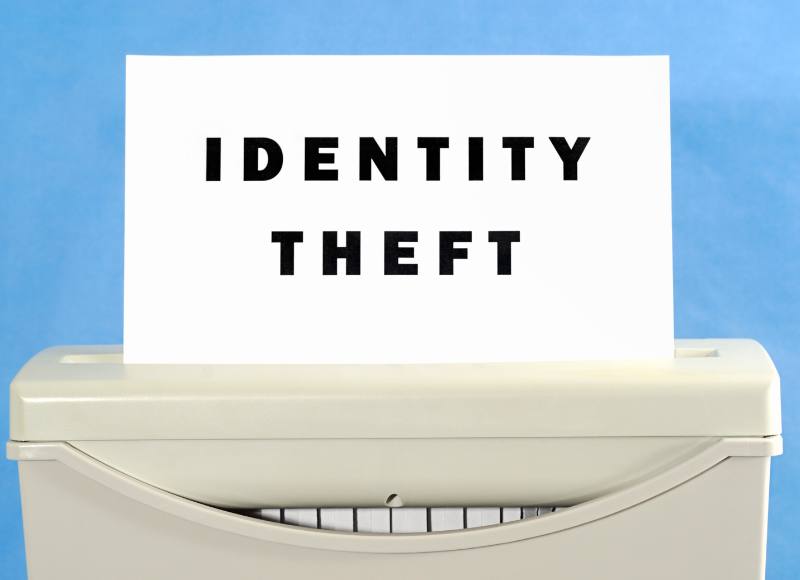Identity Theft Scammers Use Spoofing as Latest Fraud Technique
Adina Anderson
. 6 min read
More than 15 million Americans fall for identity theft scams each year, and that number is rising as the skill and quantity of these con artists' tools of the trade grows by the week. These days, spoofing is a new fraud technique used by con artists, so you have to be extra vigilant. In order to steal your personal information, identity thieves may use this strategy to establish phones accounts and contact you through email, phone, or IP address. Criminals have more than one trick under their sleeves. So, while the con artists may keep trying to deceive, rest assured that our team of skilled developers is committed to keeping you informed and protected.

Don't Immediately Believe Statement that "You are Under Investigation"
This may come as a shock
But it's really rather simple for hackers to take over something like a phone number. Spoof card is only one of several applications that enable almost anybody to mask their true phone number with one of their choice. It may be the number of the nearby coffee shop or the local police station. Worst worse, fake card and similar services may disguise a phone number so successfully that it appears on your account as legitimate businesses like the police or the IRS.
This doesn't help stalker victims either
They are not able to collect sufficient evidence of their stalker's illegal behavior to warrant legal action on their behalf. In other words, the app's developers don't give a damn that this is an issue. A detailed guide on how to get in touch with an ex who has banned your number can be found in one of the most current blog posts on the company's website. The initial target audience was thought to be those in occupations where anonymity was necessary, such as private detectives, debt collectors, and others.
This is why crooks always try to make the situation seem dire
They do this by initiating a series of calls that occur in rapid succession over the course of a few minutes. Imagine you get such a call right now. You first had zero interest in picking up. After three or four rings, you realize it must be important and pick up. Nevertheless, before you dial, you decide to use Google to verify the number. The second time it rings, the other person greets you by name and begins talking fast to make you feel like you need to go to the phone right away.
They tell you the problem is crucial and inquire whether
You are aware of the fact that the FBI is looking into you. Moreover, they do an excellent job of making it seem plausible. Have you been informed on your file? is a possible inquiry. Do you realize how serious this is and that authorities may be on their way to make an arrest at any moment? You're feeling more flustered and worried, but when you attempt to gain additional information such as, "What crime are they investigating me for?"
You have no idea what to do and are probably in a state of hysteria
The correct choice is obvious. Immediately end the call. A federal agent would never pose as a con artist. Oh, and by the way, you are free to use whatever slurs you choose before hanging up on the scammer. You get to have fun with your imagination there, youngster. Identity theft security firm LifeLock's head of identity education, Page Hanson, says this is a frequent tactic used by fraudsters to get sensitive information.
It's regrettably common, and plenty of people fall for it
Scammers, unfortunately, include a sizable population of trained psychologists. They know that it's difficult to ignore the phone when it rings repeatedly in a short amount of time, and that once you do, a threatening message laced with urgency will play. Nobody could possibly resist this. Regulators' efforts to curb these sorts of bogus calls were hampered greatly, at least initially.
They probably wouldn't call you to let you know
However, if you are really the subject of an FBI probe. If you had time to run, you wouldn't be here, would you? You are about to be arrested for the 3-2-1 scheme. The local police department's number is used in yet another identity theft attempt. You answer the phone to a robotic voice telling you that police are on their way to take you into jail owing to many severe charges. Before taking any legal action against you, you may contact us so that we can discuss the situation. Almost robotic, that is. An inquiry like this is natural to have after a call like this.
If they plan to arrest me, there's no need for them to notify me beforehand
For me to have a window of opportunity to go away. Why would law enforcement want to talk to someone they suspect of a crime? If a person calling with a legitimate inquiry heard such rubbish, they would likely hang up. Nevertheless there are many that lost thousands of dollars because they fell for such scams. The con involving your account fraud. Scammers use a variety of scare tactics, including making victims believe they are the subject of an investigation in order to get sensitive information.
In another variation, crooks pose as investigators looking into bank account fraud
You never know when the phone may ring, and the person on the other end might claim to be from the police or your bank. You can verify this using their phone number, of course. If bank account has been hacked due to fraud exposure, you will be informed. The fraudsters will then claim that verifying your account details is necessary for identifying and apprehending the perpetrator.
Your card number, security code, and perhaps PIN will be requested
You may be asked to input your PIN into your phone, at which point the identity thieves will have access to it. Scammers, however, go beyond even this seemingly bold plan. In order to conduct a forensic examination of the funds, they urge prospective victims to withdraw cash from their account.
You may think this is too far-fetched to believe, but unfortunately, some people really do
In most instances, the elderly (those above the age of 60) are the ones who are duped by such schemes. Thus, if you aren't already doing so, make it a point to regularly update your senior friends and family on the latest scam alerts so they can avoid being taken in. The best way to avoid falling prey. Always be on alert is the first and most important piece of advice.
You should already be on guard if you get a strange phone call
Keep in mind that the police and your bank would never call and ask for personal information like your PIN or account number. Get cash out and have it delivered via courier. If you wish to double-check whether or not the phoned number is legitimate, you should send your personal items, such as bank cards, out with a Courier, cab, or someone else. Took place in a laboratory. If you haven't heard from the scammer in at least 5 minutes, you'll probably be reconnected if you try to contact them again.
Report any questionable calls to the authorities
Depending on the circumstances, they may be able to determine the origin of the call. Furthermore, make sure your loved ones who are a little older are aware of this scam and have the resources they need to be protected and up-to-date. In order to protect them from these identity thieves.
Conclusion
Identity theft is a serious problem that affects more than 15 million Americans every year, and the number is rising. Criminals are using new fraud techniques like spoofing, which enables them to mask their true phone numbers and make it appear as though they are legitimate businesses like the police or IRS. They use scare tactics to get sensitive information from their victims and make them believe that they are under investigation or that their bank accounts have been hacked. Unfortunately, scammers include a sizable population of trained psychologists who know how to play on people's fears and anxieties. Therefore, it is crucial to be aware of these tactics and protect yourself against identity theft.
More Stories from
Exploring the Uncharted: Speculative Insights into the World Beyond 2021
This article provides a brief overview of potential geopolitical shifts, technological advancements, environmental concerns, health challenges, economic developments.
Racial Justice and Inclusivity: Promoting Equality in Society
Explore the vital journey towards racial justice and inclusivity as we uncover the challenges faced by marginalized communities and the transformative power of inclusivity.
The Enchanting Rhododendron: Himachal Pradesh's State Flower
Discover the captivating Rhododendron, the state flower of Himachal Pradesh, India. This vibrant evergreen shrub, native to the Himalayas, paints the landscape with breathtaking colors each spring.
Masroor Rock Cut Temple in Kangra, Himachal Pradesh: A Marvel of Ancient Architecture
Discover the fascinating world of the Masroor Rock Cut Temple, an architectural gem carved into the sandstone cliffs of Kangra, Himachal Pradesh.
Fighting Fake News: Strategies for Navigating a Misinformation-Flooded World
Navigate the information landscape with confidence in the face of misinformation. Learn effective strategies to identify, verify, and combat fake news in today's digital world.











.png?width=40&aspect_ratio=1:1)

.png?width=40&aspect_ratio=1:1)